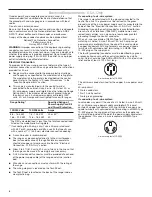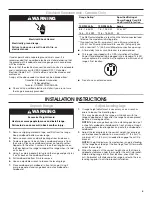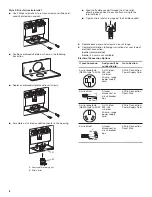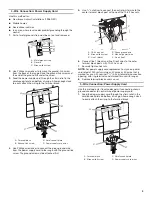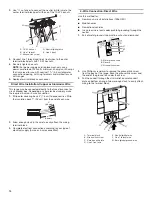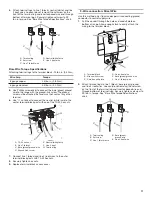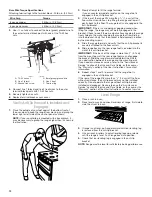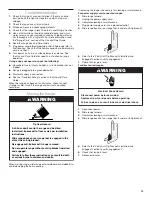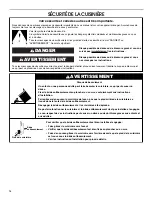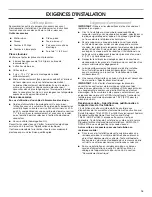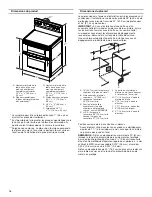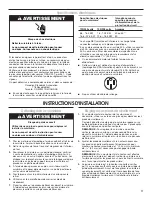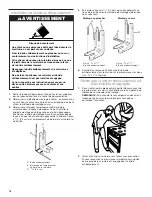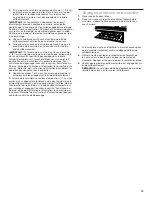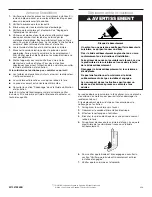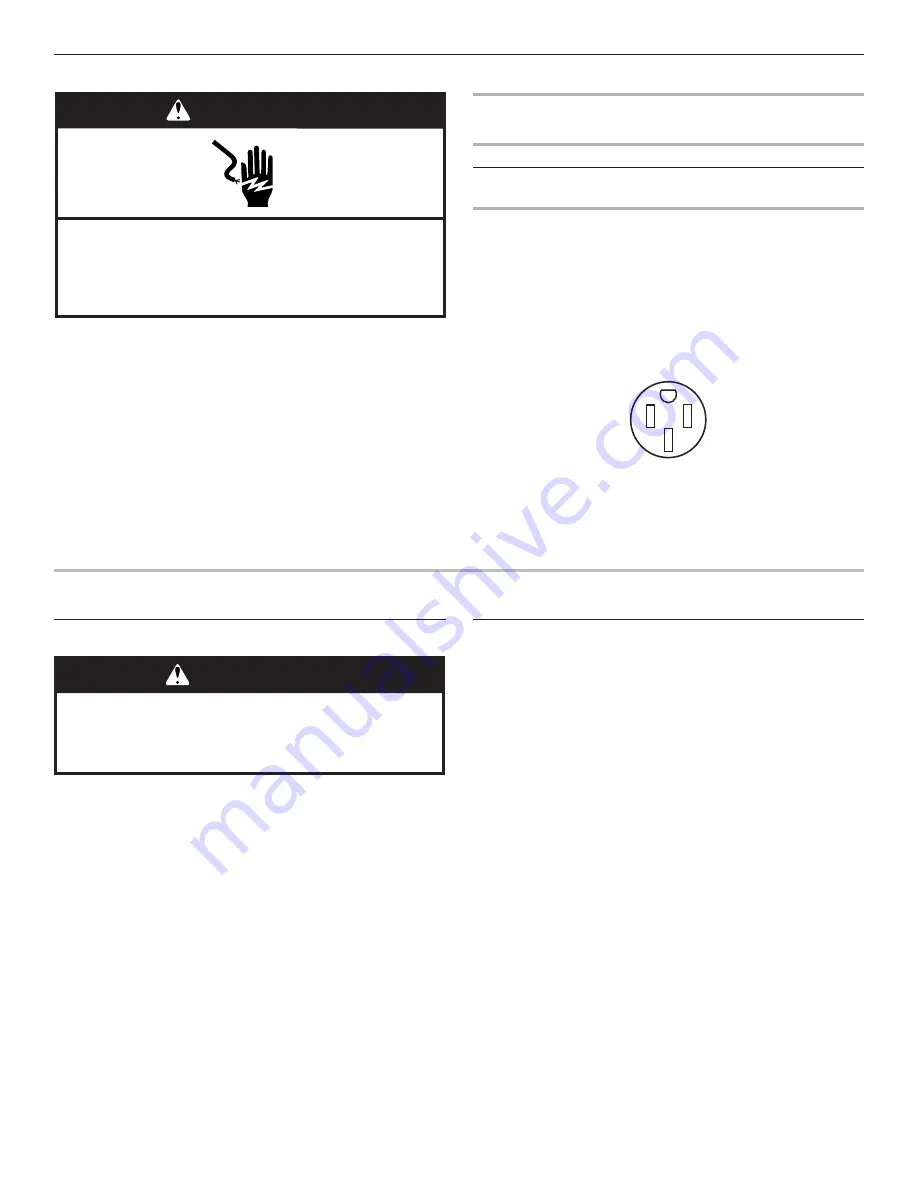
5
Electrical Requirements - Canada Only
If codes permit and a separate ground wire is used, it is
recommended that a qualified electrical installer determine that
the ground path is adequate and wire gauge are in accordance
with local codes.
Be sure that the electrical connection and wire size are adequate
and in conformance with CSA Standard C22.1, Canadian
Electrical Code, Part 1 - latest edition, and all local codes and
ordinances.
A copy of the above code standards can be obtained from:
Canadian Standards Association
178 Rexdale Blvd.
Toronto, ON M9W 1R3 CANADA
■
Check with a qualified electrical installer if you are not sure
the range is properly grounded.
* The NEC calculated load is less than the total connected load
listed on the model/serial/rating plate.
** If connecting to a 50-amp circuit, use a 50-amp rated cord
with kit. For 50-amp rated cord kits, use kits that specify use
with a nominal 1
3
/
8
" (34.9 mm) diameter connection opening.
■
A time-delay fuse or circuit breaker is recommended.
■
This range is equipped with a CSA International Certified
Power Cord intended to be plugged into a standard 14-50R
wall receptacle. Be sure the wall receptacle is within reach of
range’s final location.
■
Do not use an extension cord.
WARNING
Electrical Shock Hazard
Electrically ground range.
Failure to do so can result in death, fire, or
electrical shock.
Range Rating*
Specified Rating of
Power Supply Cord Kit
and Circuit Protection
120/240 Volts
120/208 Volts
Amps
8.8 - 16.5 KW
16.6 - 22.5 KW
7.8 - 12.5 KW
12.6 - 18.5 KW
40 or 50**
50
INSTALLATION INSTRUCTIONS
Unpack Range
1.
Remove shipping materials, tape, and film from the range.
Keep cardboard bottom under range.
2.
Remove oven racks and parts package from inside oven.
3.
To place range on its back, take 4 cardboard corners from
the carton. Stack one cardboard corner on top of another.
Repeat with the other 2 corners. Place them lengthwise on
the floor behind the range to support the range when it is laid
on its back.
4.
Using 2 or more people, firmly grasp the range and gently lay
it on its back on the cardboard corners.
5.
Pull cardboard bottom firmly to remove.
6.
Use an adjustable wrench to loosen the leveling legs.
7.
Place cardboard or hardboard in front of range. Using 2
or more people, stand range back up onto cardboard or
hardboard.
Adjust Leveling Legs
1.
If range height adjustment is necessary, use a wrench or
pliers to loosen the 4 leveling legs.
This may be done with the range on its back or with the
range supported on 2 legs after the range has been placed
back to a standing position.
NOTE:
To place range back up into a standing position, put
a sheet of cardboard or hardboard in front of range. Using 2
or more people, stand range back up onto the cardboard or
hardboard.
2.
Adjust the leveling legs to the correct height. Leveling legs
can be loosened to add up to a maximum of 1" (2.5 cm). A
minimum of
3
/
16
" (5.0 mm) is needed to engage the anti-tip
bracket.
NOTE:
If height adjustment is made when range is standing,
tilt the range back to adjust the front legs, then tilt forward to
adjust the rear legs.
3.
When the range is at the correct height, check that there is
adequate clearance under the range for the anti-tip bracket.
Before sliding range into its final location, check that the
anti-tip bracket will slide under the range and onto the rear
leveling leg prior to anti-tip bracket installation.
WARNING
Excessive Weight Hazard
Use two or more people to move and install range.
Failure to do so can result in back or other injury.




